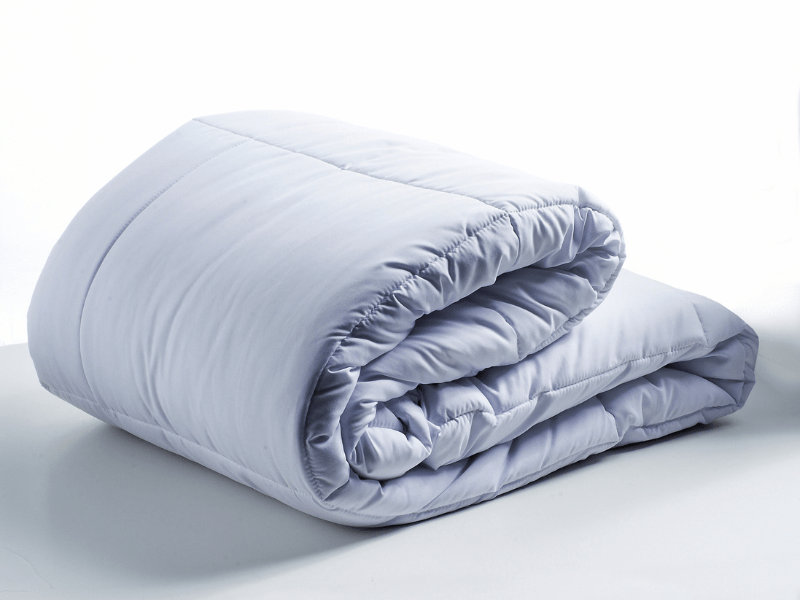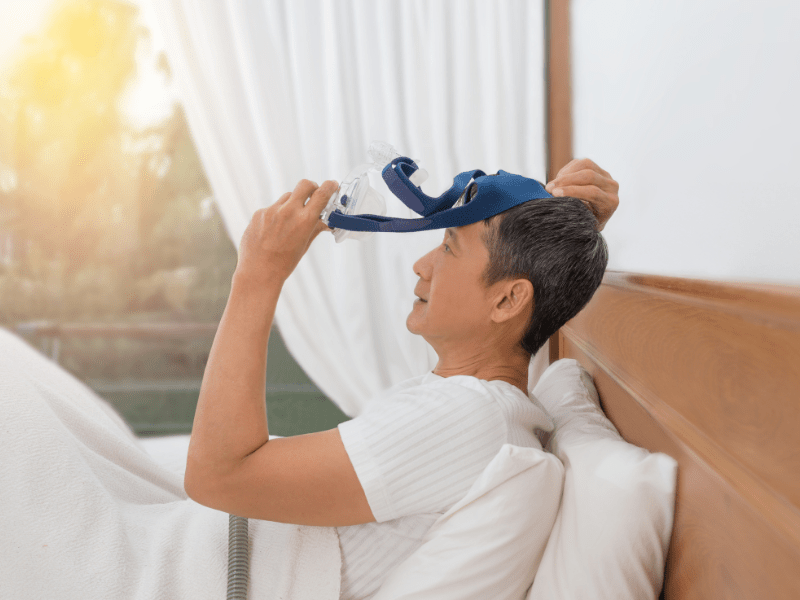Introduction
The question of "Is 6 hours of sleep enough?" may haunt you in today's busy world. Research suggests more than half the population may not be achieving the recommended seven to eight hours of sleep a night.
In this enlightening blog post, we delve into why biologically our bodies need more rest and explore the consequences of running on insufficient sleep. Are you ready to find out if your sleeping habits are helping or harming your health?
The Effects of Getting Only 6 Hours of Sleep
Insufficient sleep brings significant consequences. Scientific research shows that the vast majority of people need more than six hours of sleep to feel good and function at their best.
Ignoring this fact, many have fallen into a pattern where they barely meet the minimum recommended hours of sleep per night, which is 7 to 8 hours based on age. The effects are far from subtle; lack of adequate sleep weakens the immune system, making the body more susceptible to illnesses.
Chronic cases of insufficient sleep can result in a variety of health problems ranging from weight gain and mood disorders to increased risk for heart disease and stroke. Reduced attention span, weakened cognitive function, decreased reaction time - these are but some symptoms encountered by those strapped with so-called "sleep debt".
What's more alarming is that according to some Fitbit researchers, you cannot simply make up for lost sleep during weekends or holidays either - it takes longer for your mind and body to recover from prolonged periods of inadequate rest.
Tips for Getting Sufficient Sleep
To ensure you get enough sleep each night, here are some helpful tips:
- Stick to a consistent sleep schedule: Try to go to bed and wake up at the same time every day, even on weekends. This can help regulate your body's internal clock and improve the quality of your sleep.
- Create a relaxing bedtime routine: Engage in activities that help you wind down before bed, such as reading a book, taking a warm bath, or practicing relaxation exercises. Avoid stimulating activities like watching TV or using electronic devices, as they can interfere with your sleep.
- Make your bedroom a sleep-friendly environment: Keep your bedroom cool, dark, and quiet. Use curtains or blinds to block out any excess light, use earplugs or white noise machines to drown out any disturbing sounds, and invest in a comfortable mattress and pillows. A memory foam mattress back pain eliminator might be just what you need.
- Limit caffeine and alcohol intake: Avoid consuming caffeine (found in coffee, tea, soda, chocolate) and alcohol close to bedtime as they can disrupt your sleep patterns and lead to restless nights.
- Regular exercise: Engaging in regular physical activity can help promote better sleep. Aim for at least 30 minutes of moderate-intensity exercise most days of the week but try to avoid exercising too close to bedtime as it may make it difficult for you to fall asleep.
- Manage stress levels: High levels of stress can negatively impact your sleep quality. Find healthy coping mechanisms for managing stress such as practicing mindfulness techniques, engaging in hobbies or activities you enjoy, or seeking support from loved ones.
Conclusion
In conclusion, while some individuals may be able to function adequately on six hours of sleep, scientific research overwhelmingly points to the fact that most adults require more than six hours of sleep for optimal health and well-being. Insufficient sleep can have negative effects on both physical and mental health, including weakened immune system, impaired cognitive function, and increased risk of chronic diseases.
It is important to prioritize adequate sleep duration and make necessary lifestyle changes to obtain the benefits of deep, restful sleep.
FAQs
1. Is 6 hours of sleep enough for adults?
While some individuals may function well on just 6 hours of sleep, the general recommendation for adults is to aim for 7-9 hours of quality sleep each night to ensure optimal health and functioning.
2. What are the potential consequences of consistently getting only 6 hours of sleep?
Consistently getting only 6 hours of sleep can lead to a variety of negative effects, including decreased cognitive performance, impaired memory and concentration, mood disturbances, increased risk of accidents and injuries, weakened immune system, and an increased risk for chronic conditions such as obesity, diabetes, and heart disease.
3. Can napping during the day make up for not getting enough nighttime sleep?
While a short nap during the day can provide a temporary boost in alertness and performance, it cannot fully compensate for consistently not getting enough nighttime sleep. Naps should be used as supplemental rest rather than replacing adequate overnight sleep.
4. How can I determine if 6 hours of sleep is sufficient for me personally?
The best way to determine if 6 hours of sleep is sufficient for you personally is by paying attention to how you feel throughout the day. If you consistently feel tired or have difficulty concentrating or staying awake during activities, it may indicate that you need more than 6 hours of sleep each night to function optimally.
The foundation for high-quality sleep is a high-quality mattress. iSense offers premium mattresses equipped with twenty comfort settings for each side of the bed. From soft to firm, sleepers will enjoy consistent, head-to-toe pressure relief. Try an iSense mattress risk free for 180 days here.






















